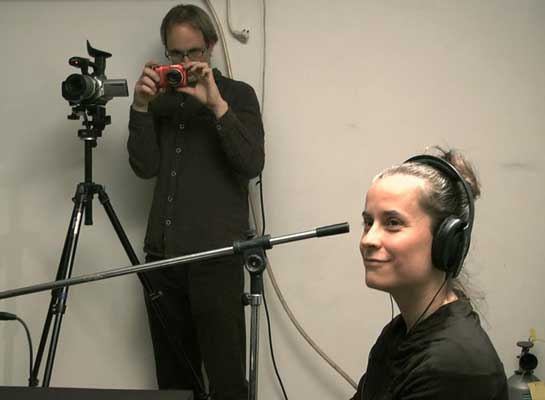basque heritage worldwide

07/19/2013

ADVERTISING
Buenos Aires, Argentina. This weekend the video, The Last Words can be seen in Buenos Aires, by Iratxe Jaio with Klaas van Gorkum. The work approaches some of the darkest points in Argentinean history from a different perspective.
[Clip from The Last Words by Iratxe Jaio and Klaas van Gorkum]
“In The Last Words, an actor and an instructor rehearse a text based on the final allegation presented at the trial of Alfredo Astiz, also known as “The Blond Angel of Death.” After being sentenced to life in prison for crimes against humanity, Astiz did not show any sign of remorse during his final statement. Instead, his text was a theatrical inversion of the situation where he defiantly describes himself as a military hero that was simply following orders, and was now a victim of persecution. Rereading his final pleas is a study of the relationship between the art of oratory, and what Hannah Arendt called the ‘banality of evil,’” its creators explain.
Markina, Amsterdam, Buenos Aires
Iratxe Jaio was born in Markina-Xemein, Bizkaia in 1976. In 1998, after finishing her degree in Fine Arts in Bilbao, she traveled to Holland to continue her studies and settled there. That is where she met her partner and co-worker Klaas van Gorkum with whom she has worked for the last twelve years.
“We share the feeling of dislocation and a strong concern for how cultural identity is constructed since Klaas is Dutch raised in Africa and I am Basque living outside of Euskal Herria. That is why we often study identity conflict in our work, showing the relationship between the individual and its social, cultural and physical context. Three months ago, we arrived to Argentina, to LiPac – Laboratory for the Practice of Contemporary Art, thanks to a scholarship from the Mondriaan Foundation, with the aim of analyzing the different phases that an institution created from the bottom must cope with. It was part of this research that we did The Last Words.
Argentina 2001 – Europe 2011
“In regards to the decision to come to Argentina, it was based in the interest that the 2001 crisis aroused in us and the process that took place following in which artists from there participated in the creation of new institutions and how they developed themselves. It was very important to us to analyze this process as a possible future for what Europe is experiencing today. This interest was also aroused by an experience that we had in 2011 when we followed the Occupy Movement 15M to occupy the squares and we put up a tent with other artist in the Occupy Camp in Amsterdam. We experienced a series of problems in the camp due mainly to drugs and violence that took us through a series of ethical dilemmas. In response to the situation, in the artists’ store we created a kind of an experimental “Truth Commission” in hopes of participation in the creation of new institutions in the activist movement.”
That is why we were paying attention to the relationship that Argentina has with justice. It seems interesting to us that this institution, instead of being the “untouchable monster” can modify itself to response to the collective problems that currently exist. This is how we got to Astiz’s allegation,” Iratxe explained to EuskalKultura.com.
The Last Words will be shown at 19:00 day after tomorrow at the Rojas Cultural Center (Corrientes 2038).
ADVERTISING
ADVERTISING
ADVERTISING
ADVERTISING
ADVERTISING
© 2014 - 2019 Basque Heritage Elkartea
Bera Bera 73
20009 Donostia / San Sebastián
Tel: (+34) 943 316170
Email: info@euskalkultura.eus